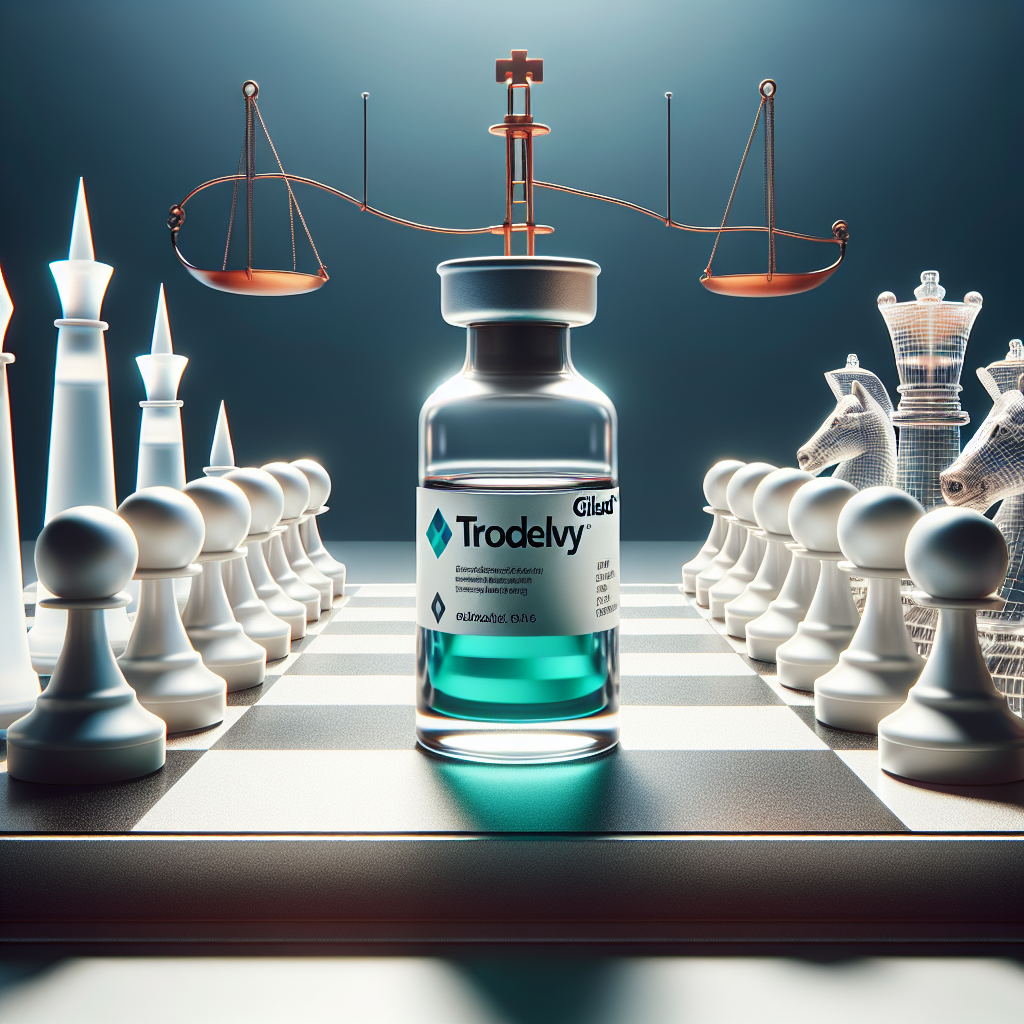Weight-Loss Drugs: An Upsurge In Competition and Implications For the Pharma Industry
The Emergence of GLP-1 Copycats
Over the past few years, weight-loss drugs, particularly GLP-1 (glucagon-like peptide-1) analogs, have taken center stage in the pharmaceutical industry. Regarded as game-changers in treating obesity, these drugs—most notably Eli Lilly’s Zepbound and Novo Nordisk’s Wegovy—are now facing competition from a burgeoning market of affordable knockoff alternatives. Companies like Hims & Hers Health, Ro, and Noom are increasingly promoting these copycat versions through a plethora of social media campaigns, offering them at dramatically reduced prices compared to their brand-name counterparts.
Geoff Cook, CEO of Noom, estimates that over one million patients could be using these compounded versions, while Citi Research analysts project that Hims & Hers might register around 100,000 users by year-end. The knockoff GLP-1s are legal due to specific federal regulations that allow compounding pharmacies to produce drug copies in response to shortages declared by the FDA. Given that these shortages primarily concern blockbuster medications, the current situation surrounding GLP-1 drugs is somewhat unprecedented.
The Fragile Future of Copycat GLP-1 Treatments
The ongoing frenzy over copycat weight-loss drugs could take a drastic turn once the FDA officially acknowledges that Lilly and Novo have resolved existing shortages. Per FDA guidelines, once the approved drugs are sufficiently available, compounding pharmacies have specific mandates on how quickly they must cease production of their versions. Larger pharmacies must stop selling knockoff medications within 60 days, while smaller ones must cease operations immediately. The absence of compounded GLP-1s could leave millions of patients without accessible treatment options, sparking a scramble for alternatives.
Scott Brunner, CEO of the Alliance for Pharmacy Compounding, highlights the convoluted consequences of this potential transition: “We’re going to have patients on the day that those FDA-approved drugs come off the shortage list who are suddenly going to be without therapies.” With this uncertainty looming, telehealth companies are lobbying to retain the ability to sell compounded versions even post-shortage.
The Economic Context and Pricing Challenges
Amid growing discontent over the high prices of GLP-1 medications, Novo’s Wegovy is listed at an eye-watering $1,349 a month, with Lilly’s Zepbound similarly expensive. Recent Senate hearings have brought this issue to light, with Senator Bernie Sanders publicly calling for substantive price reductions from pharmaceutical leaders.
Novo Nordisk’s trajectory remains promising, with expectations for earnings growth of approximately 25% this year and 26% next year—largely driven by Wegovy and Ozempic sales. In contrast, compounding pharmacies are seizing the opportunity in the GLP-1 market, offering treatments starting at $149 per month, making them significantly more accessible than branded drugs.
However, the aggressive pricing strategy of telehealth firms could lead to complications within the compounding pharmacy industry, as Brunner notes: “I fear that marketing compounded drugs exclusively based on price stands to undermine the reasons compounding is authorized in the first place.”
The Risks and Regulatory Landscape
As telehealth companies like Hims & Hers enter into the GLP-1 domain, they are confronted with potentially adverse regulatory implications, especially from drug manufacturers like Lilly and Novo, who have already begun litigation against entities that misadvertise their products. There is an underlying tension between the perceived accessibility of compounded drugs and the possible sacrifices in safety, as the FDA has explicitly cautioned that unapproved compounded semaglutide drugs do not offer the same assurances as their FDA-approved counterparts.
The Wall Street investment landscape seems undeterred by the emerging risk to the drug makers, as pharmaceutical giants Eli Lilly and Novo Nordisk continue to see favorable stock performance. Market analysts appear to hold a firm belief that GLP-1 copycats will not significantly dent the robust sales sustained by branded offerings. However, the reality for patients is much more complicated—many are left with limited insurance coverage for these medications, restricting access to the very treatments they require.
The Path Ahead for GLP-1 Treatments and the Industry
Going forward, the compounded GLP-1 industry is set to face an evolution contingent on regulatory decisions from the FDA regarding supply and pricing. As telehealth firms assert their value propositions, emphasizing “trusted brands” and sustainable outcomes, the industry must navigate a precarious landscape—one that intertwines patient needs, profit motives, and regulatory outlooks.
Investors should pay close attention to the dynamics surrounding GLP-1 drugs, particularly as they monitor ongoing discussions about affordability and accessibility. The competition inherent in the rise of copycat drugs provides both risks and opportunities, compelling investors to stay vigilant in an industry where change is constant and sometimes unpredictable.
As we approach the FDA’s decision-making point on GLP-1 availability, the insights and strategies of all participants—big pharma, compounding pharmacies, and telehealth companies—will hold significant implications for both the future of weight-loss treatments and the pharmaceutical landscape as a whole.
















